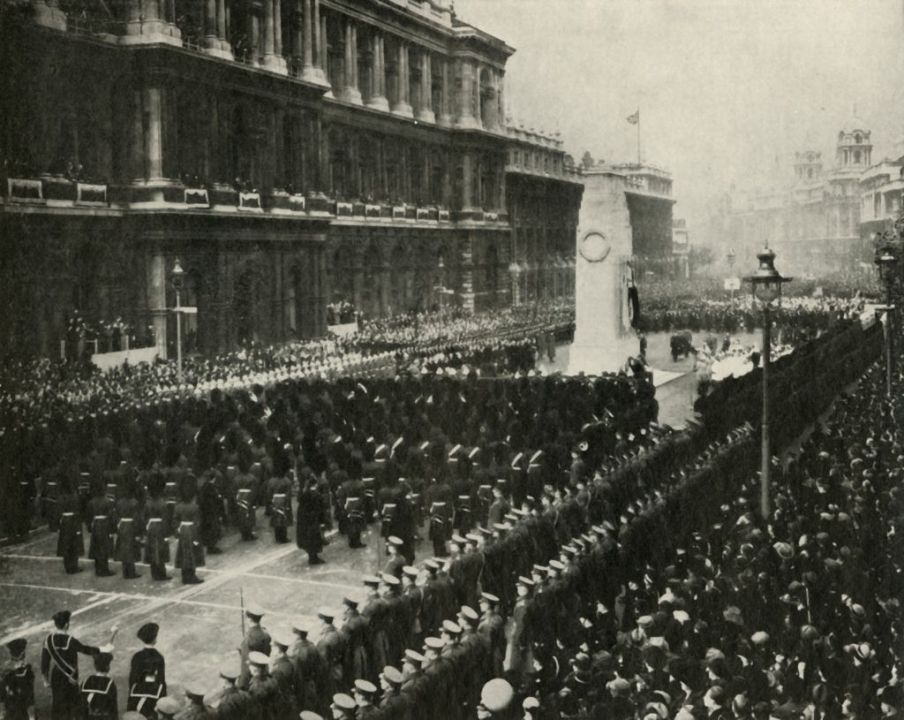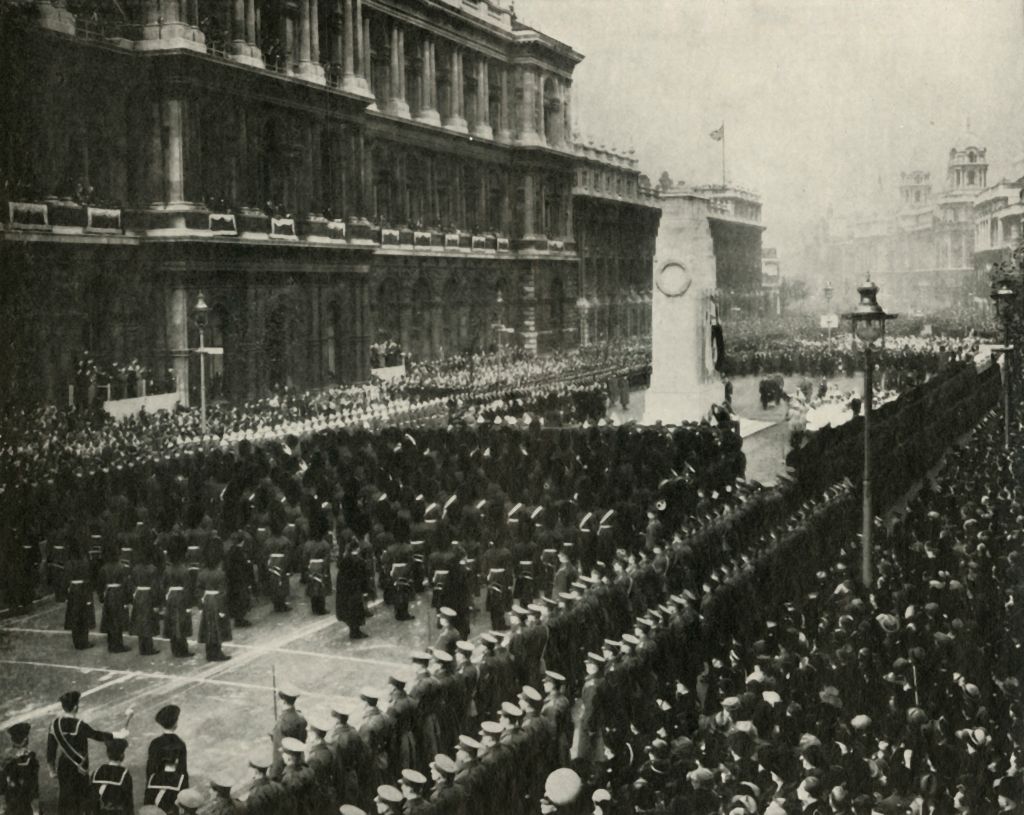Every year I lay a wreath a week early, because Blyth, my nearest town, was a submarine port. Submariners were banned from the first Armistice Day parade in Whitehall by a bossy admiral on the grounds that they were pirates who targeted civilians. In response they adopted skull-and-crossbones badges and arranged their own celebrations on the Embankment in London, and in Blyth and Dundee, a week before the official ones. The tradition survives more than a century later.
The Cenotaph deliberately puts the sacrifice of Muslim, Jew, Hindu, Buddhist, atheist and Christian on an equal footing.
The veterans who a decade ago would have memories of chasing the Bismarck or bringing a pet reindeer calf back on board a sub from Murmansk have now faded from the scene. This year I talked to one sailor whose last mission was to take a nuclear–missile boat out of Barrow on its maiden voyage in the 1990s.
For all the lingering irritation at that long-dead admiral, he would never defend, let alone contemplate, violence in the cause. He was angry at the prospect that this weekend’s ceremony at the Cenotaph might be marred by violent protests from pro-Hamas demonstrators – but he would never defend violence in that cause either. The insensitive decision to allow a stage to be erected right beside the Cenotaph for speeches at a previous pro-Hamas demonstration shortly after the atrocities in Israel hurt too. But not to the point of violence.
Yet the fact that people don’t behave violently does not mean they should be ignored. The Cenotaph is a sacred monument of a tribe, something that the Mayor of London and the Metropolitan Police need to remember and respect. Our reverence for the Cenotaph and for Armistice Day is, after a century, well on the way to becoming a spiritual, even religious symbol of peace for the people of this island, as secularly sacred as any explicitly religious tradition.








Comments
Join the debate for just £1 a month
Be part of the conversation with other Spectator readers by getting your first three months for £3.
UNLOCK ACCESS Just £1 a monthAlready a subscriber? Log in